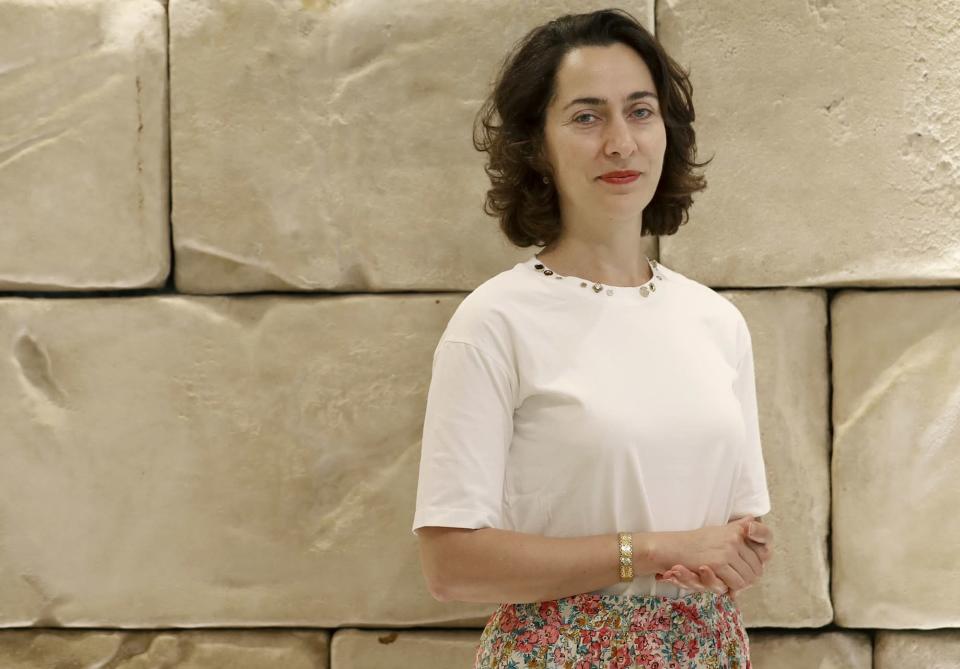Barcelona (Spain), Jun 12 (EFE).- Islam and freedom are two inseparable ideas for the jurist and Islamologist Kahina Bahloul (Paris, 1979), the first woman to declare herself an imam in France and founder of the Mosque of Fatima, where they pray together men and women and where he teaches a faith in which universality and spirituality prevail over rigidity.
An idea that the student of Islamic theology captures in ‘My Islam, my freedom’, a published book that delves into the liberal current of this religion professed by almost 2,000 million people around the world, with the aim of promoting a new look at this creed.
Bahloul, who has created the association Parle-moi d’islam (Tell me about Islam), defends that Europe “is an environment conducive to the emergence of liberal Islam”, as it is a continent where freedom of conscience is mostly respected and there is a clear separation between religious creeds and the State, he explains in an interview with Efe.
The Islamologist, who in 2019 founded the Mosque of Fátima, relates that, in a certain way, this current of Islam is not new, although it has been minimized by the political instrumentalization of religion, which instead of “accompanying the human being in his spiritual path” has become a form of social control.
He advocates an open, peaceful and inclusive Islam, he assures that “the renewal of Muslim thought” is crucial to satisfy a world where much progress has been made in material aspects, although at the cost of abandoning that very human need such as transcendence. .
Courage is something that goes with Bahloul, and not just because she shares her first name with an ancient Jewish Berber queen renowned for her courage, but because, as she explains, “it’s never easy for a woman to start down a path of pioneering something”, and less so in a world like the religious one.
Her vision of Islam is framed in the “Sufi” current, very focused on spirituality and mysticism, deeply rooted among the Berber peoples of which the writer is a part through her father – her father is Algerian – and of respect and coexistence with other religions, which in part comes from his Christian mother and Jewish grandmother.
The existence of these currents is “a breath of fresh air” for many Muslims who, says Bahloul, have the right to live “in harmony” with their environment, although “on the other hand there is a lot of resistance from fundamentalists and clerical power” to open spaces for spiritual reflection.
The jurist is also very critical of some feminist postulates that defend the veil as a sign of identity for Muslim women, although she clarifies that it is a complex debate.
“There is an entire feminist movement that is a product of identity Islam that justly claims the right for Muslim women to wear the veil, because it would be part of their identity, but not for me, I am Muslim and I do not consider the veil to be part of of my identity,” he adds.
The writer details that she has seen this evolution in Algeria, the country where she grew up despite being born in France, since the current generation has recovered the veil, which had been massively abandoned during the 20th century.
Bahloul explains that there was “a universal movement to leave the veil” that broke with the generation of his grandparents, but that “the resurgence of fundamentalism and political Islam” have built a thought that decided that it was necessary to “control” the bodies of the women “veiling” them.
The Islamologist points out that the veil was not historically a Muslim garment only, and that it occurred in other religions and cultures, such as the Christian – when women had to go covered to mass – or the female obligation to cover the head in some branches of the Orthodox Judaism.
Regarding the threats received due to her status as imam and woman, Bahloul confesses that they are mostly through social networks, but she downplays it: “I don’t think it’s very serious, I haven’t taken it seriously, but there are people who the networks have fun doing this”.
As for the European rejection of Islam, it is, in his opinion, a triumph of fundamentalism, and he reproaches Europe for not having been able to “integrate better, know better, have more nuances when it speaks of Islam”, above all because of its strong historical relationship with Muslim lands.
“I think they have succeeded in imposing a vision, an image of Islam, and they have succeeded in imposing their Islam, which they have turned into ‘Islam,'” laments Bahloul.
(c) EFE Agency
Europe is ripe for the emergence of liberal Islam, says French expert

